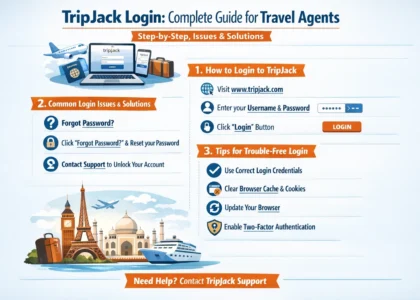Comprehending Promotional Vouchers
Promotional vouchers are offered by companies used to inspire consumer loyalty and buying activity. Discount codes, gift cards, cashback incentives, and limited-time sales are just a few of their several manifestations. While some coupons are supposed to be used once, others may be used several times within a given period. Companies utilize these coupons deliberately to draw in fresh business, keep current ones, and increase sales in lean times.
The type of a voucher dictates whether or not one may share it. Certain vouchers are non-transferable and connected to particular accounts or consumers. Others are universal discount codes available to everybody with access that apply everywhere. Finding out whether you might share a voucher with a friend starts with knowing the kind one you have.
Any Limits Placed On The Goods Or Services It Covers
Many businesses say clearly that vouchers are just for personal use. They cannot thus be traded, sold, or shared. Should a company link a coupon to a particular customer account, it may call for confirmation, that is, login into an account or submit personal information before applying the discount. Under such circumstances, it is not feasible to share the voucher with a buddy.
Conversely, some companies provide universal promo codes that anybody might use. Usually seen on social media, email campaigns, or partner websites, these codes are meant to be seen by a larger audience. Under such circumstances, distributing the voucher not only is permitted but also recommended since it increases the visibility and patronage of companies.
Ethical Thoughts On Voucher Sharing
Even if one could provide a promotional coupon, ethical issues should be considered. Sharing a voucher with a friend could be viewed as dishonest if it is clearly meant for one person. Tracking systems are used by many businesses to keep an eye on voucher usage; illegal distribution could result in account bans or restrictions.
Sharing such customized coupons based on consumer behavior such as a birthday discount or a loyalty reward may also go against the essence of the promotion if a company offers them. These vouchers are meant for personal use, hence spreading them can compromise the loyalty program of the business.
Some companies, on the other hand, promote sharing with reference codes or group discounts. Under such circumstances, distributing vouchers to friends helps both of you and fits the marketing plan of the company.
How Companies Implement Coupon Policies
Businesses apply several strategies to implement voucher rules and stop abuse. One such method is connecting vouchers to consumer records. A voucher linked to an account only allows the account holder to use it. Certain companies even use one-time-use codes to guarantee that every voucher is just used once.
Before using the coupon, another approach calls for proving identity by email confirmation or a mobile number. This stops consumers from distributing certificates designed for personal consumption. Companies also track coupon redemption trends and could revoke or cancel vouchers should they find fraudulent behavior.
Some consumers try to get around these limitations by sharing login credentials or utilizing several accounts, therefore violating the policy. Still, companies keep changing their systems to find such behaviors and punish accordingly—that is, by invalidating vouchers or suspending accounts.
Advantages Of Sharing Coupons
While some companies forbid voucher distribution, others see its marketing power. Letting consumers share vouchers will help to raise brand recognition and draw fresh business. Referral schemes, for instance, might give discounts or benefits to the new client as well as the referrer, therefore promoting controlled voucher sharing.
Sharing vouchers also improves bonds. Should a buddy get a discount code from you, they could be more likely to test the brand and buy something. This starts a good cycle whereby the company gains as well as consumers do. Many companies profit from this by running “friends and family” discounts, in which sharing is not only encouraged but also permitted.
Sharing vouchers also helps to make purchases more reasonably cost. Many vouchers call for a minimum purchase to start the discount. Both sides can save without going over their own budgets by combining purchases with a friend and using the voucher jointly.
Voucher Sharing Risks
Sharing Pragmatic77 coupons has hazards even with their advantages. Using a voucher in illegal ways could result in fines, including cancellation of discounts or perhaps platform ban if it is not supposed to be shared. Companies who find abuse may cancel discounts, therefore depriving the original user as well as the friend of benefit.
Sharing vouchers with people you know or posting them online also could cause abuse. Leads companies to deactivate vouchers early on as some use leaked voucher codes for fraudulent transactions. This implies that even legal users who got the code from a friend could not be able to make use of it.
Conclusion
Whether or not you can give a buddy a promotional voucher relies on the particular terms and restrictions established by the company printing it. While some vouchers are meant for one-time use and non-transferable, others promote sharing as part of a marketing or referral campaign. Ensuring that you and your friend may enjoy discounts without breaking any policies depends on knowing the guidelines and ethical consequences of voucher distribution.
Should a voucher be shareable, it’s a fantastic method to cut costs and introduce others to fresh ideas. If it is only for personal use, though, distributing it can result in fines or the voucher being void. Before handing along a promotional coupon, always review the terms; if in question, ask the company for explanation. Respecting the policies and applying vouchers wisely will help you to realize their advantages while preserving moral customer behavior.





